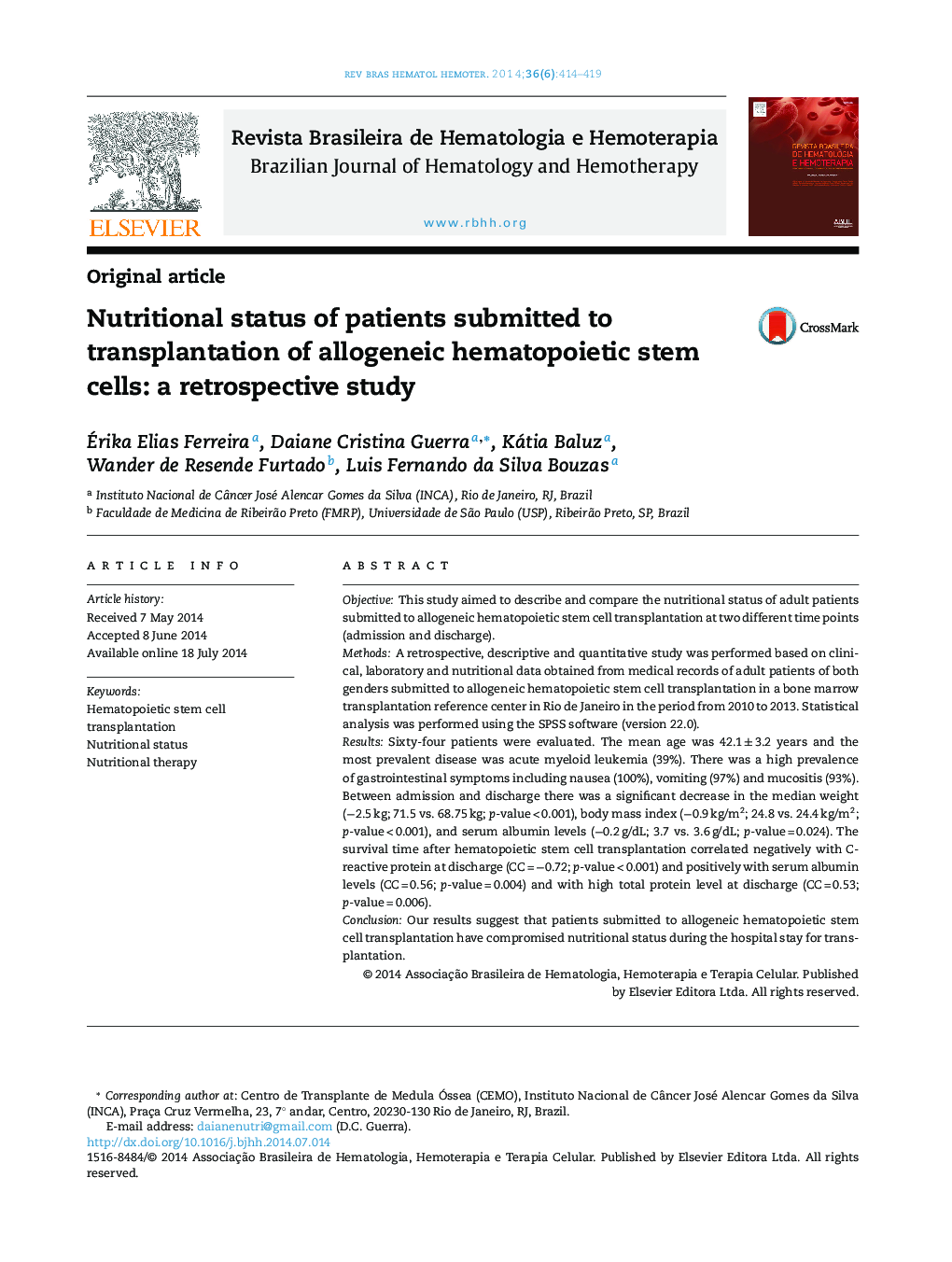| Article ID | Journal | Published Year | Pages | File Type |
|---|---|---|---|---|
| 3333013 | Revista Brasileira de Hematologia e Hemoterapia | 2014 | 6 Pages |
ObjectiveThis study aimed to describe and compare the nutritional status of adult patients submitted to allogeneic hematopoietic stem cell transplantation at two different time points (admission and discharge).MethodsA retrospective, descriptive and quantitative study was performed based on clinical, laboratory and nutritional data obtained from medical records of adult patients of both genders submitted to allogeneic hematopoietic stem cell transplantation in a bone marrow transplantation reference center in Rio de Janeiro in the period from 2010 to 2013. Statistical analysis was performed using the SPSS software (version 22.0).ResultsSixty-four patients were evaluated. The mean age was 42.1 ± 3.2 years and the most prevalent disease was acute myeloid leukemia (39%). There was a high prevalence of gastrointestinal symptoms including nausea (100%), vomiting (97%) and mucositis (93%). Between admission and discharge there was a significant decrease in the median weight (−2.5 kg; 71.5 vs. 68.75 kg; p-value < 0.001), body mass index (−0.9 kg/m2; 24.8 vs. 24.4 kg/m2; p-value < 0.001), and serum albumin levels (−0.2 g/dL; 3.7 vs. 3.6 g/dL; p-value = 0.024). The survival time after hematopoietic stem cell transplantation correlated negatively with C-reactive protein at discharge (CC = −0.72; p-value < 0.001) and positively with serum albumin levels (CC = 0.56; p-value = 0.004) and with high total protein level at discharge (CC = 0.53; p-value = 0.006).ConclusionOur results suggest that patients submitted to allogeneic hematopoietic stem cell transplantation have compromised nutritional status during the hospital stay for transplantation.
